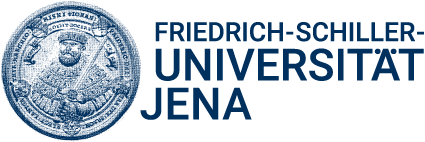LGSA - Curriculum
LGSA PhD candidates join one of the research groups within the Leibniz Institute on Aging (FLI) or the Friedrich Schiller University (FSU) in Jena. In this group they will carry out the independent research of their doctoral thesis. The experimental work is supervised by a thesis committee consisting of the project leader plus two group leaders or senior postdocs outside the group of the project leader. Preferably, at least one committee member comes from another institute.
The practical work is complemented with lecture series, seminars, journal clubs and practical courses as well as training in presentation skills and language courses.
The goal of a successful PhD project is to publish at least one first-author paper in an international peer-reviewed journal. At the end of the project a written thesis, an exam and a successful thesis defence qualify for a Ph.D. or Dr. rer. nat. degree at the Friedrich Schiller University in Jena. PhD candidates have also the choice to receive their doctoral degree from another university.
The LGSA is part of the Jena School of Molecular Medicine (JSMM) and a member of the Graduate Academy Jena which offers an exciting qualification program for future tasks within and outside academia and today's society.
Participation in a number of the following activities and courses is obligatory to complete a PhD program at the Leibniz Graduate School on Aging and Age related Diseases (LGSA) and qualifies for the Graduate School Certificate.
1. The FLI-Colloquium is a Thursday lecture series of external speakers usually scheduled at 4pm. PhD candidates are encouraged to invite and take care of speakers for the lecture series.
2. For Lectures on Science and Society renowned scientists are invited to talk about social, societal and demographic aspects of aging.
3. Further lectures on biomedical aspects are offered by other members of the JSMM. Please check the lecture program of the Interdisciplinary Centre for Clinical Research (IZKF), events from the Center for Sepsis Control and Care (CSCC-RTG) or the schedule of the Research Training Group 1715 - Adaptive Stress Responses (RTG 1715).
The FLI work-in-progress seminar (currently on Tuesdays, 11.30 am) is obligatory for students, postdocs and senior scientists. Within this seminar series you can discover the current scientific aims of all research groups at the FLI.
In addition participation in the annual institute's retreat with a poster presentation is obligatory.
FLI research groups conduct journal clubs on many different topics. PhD candidates have to attend one of the already existing or to be established journal clubs. As a rule, each PhD candidate has to analyse and present two scientific articles per year.
The FLI as well as the Graduate Academy Jena offers regularly instructions and courses on research methodology and safety aspects. PhD candidates are encouraged to propose new courses on metholology. Theoretical introductions for state of the art techniques or hands-on training supervised by PIs of service groups or advanced PhD candidates complement this part.
These courses provide important additional training that goes beyond the scientific education. Courses are offered by the FLI and the Graduate Academy on a regular basis. This includes topics like presenting and publishing, career planning and application, good scientific practice, communication and management. These skills should help the students to shape their personalities and foster their career.
PhD candidates have to attend at least one seminar on technology transfer (TT) during their PhD project.
PhD candidates will have the opportunity to present their own research and thus gain experience on the international scientific stage. They should attend at least one internationally recognized conference per year. It helps to establish networks within the scientific community and to get insights into state-of-the-art research in the field. This also leads to practice in presentation and discussion in front of a large auditorium. An even more general communication of science should be obtained by participating in public relation events such as the Long Night of Sciences, Girls’ and Boys’ Day or guiding visitors.
The FLI provides the opportunity to learn German and/or English at different levels. Please contact the coordination office for further details.











